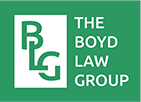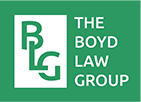The global law firm, Jones Day, is currently embroiled in a gender and discrimination class action lawsuit brought by former associates against the firm. The former associates, all of whom are women, allege various instances of discrimination which the firm vigorously denies. It is alleged in the suit that Jones Day maintained a discriminatory parental leave policy, a gendered pay scale system, and altered female associates’ profile photographs on its website to make them look more attractive.
One of the more novel issues presented in the case is whether, in employment discrimination cases, members of the class should be permitted to join the suit anonymously to prevent public backlash, retaliatory conduct, and reputational harm.
Currently, federal law generally requires plaintiffs in an action to file publicly, which means they must disclose their identities. This remains the case even in sexual harassment or retaliation cases, because the available legal justifications for filing under a pseudonym are limited to severe cases of physical danger, reputational or psychological harm. As Jones Day was quick to point this out in its opposition to a Plaintiff’s anonymity request, allowing a plaintiff to proceed under a pseudonym is a “rare dispensation” and must outweigh the fairness to the opposing party.
Courts in the Second Circuit Court of Appeals, which encompasses the federal courts for the states of New York, Connecticut and Vermont, rely on a factor driven analysis to determine whether plaintiffs can pursue their claims anonymously. The factors include, but are not limited to: (1) whether the litigation involves a highly sensitive personal matter; (2) whether proceeding publicly would result in retaliatory harm to the plaintiff; (3) whether identification of the plaintiff would result in harm to others; (4) whether the plaintiff is particularly vulnerable to the possible harm of disclosure; and (5) whether the defendant would be prejudiced by allowing the plaintiff to move forward anonymously. Sealed Plaintiff v. Sealed Defendant, 537 F.3d 185, 190 (2d Cir. 2008). Balancing these factors requires a fact sensitive inquiry, but in practice, a plaintiff must clear a high bar to proceed in a case anonymously.
Employee advocates, especially in employment discrimination lawsuits, are working to advance plaintiff rights to proceed anonymously, given the changing legal landscape and prevailing attitudes in the #MeToo era. Such advocates feel that plaintiffs in employment discrimination lawsuits should be permitted to file anonymously because of the potential costs and stigma that can be associated with pursuing such claims publicly. This is particularly the case in careers where networks overlap, such as law, finance, or entertainment. It is argued that Plaintiffs in these fields face career difficulties and can sometimes be forced out of their profession altogether after making discrimination complaints and pursuing them in court.
The real question is whether the changing climate and times will impact the way our courts balance the right of employees to privacy with the rights of employers (and potentially the community at large) to have grievances debated in public. At The Boyd Law Group, we and have demonstrated results for our clients while also maintaining their privacy where possible. If you have experienced discrimination or retaliation, please feel free to contact us for an initial case evaluation at 1-800-617-4254. Also, please weigh in on these important concerns with your government representatives and think them through. These issues need and deserve attention!

